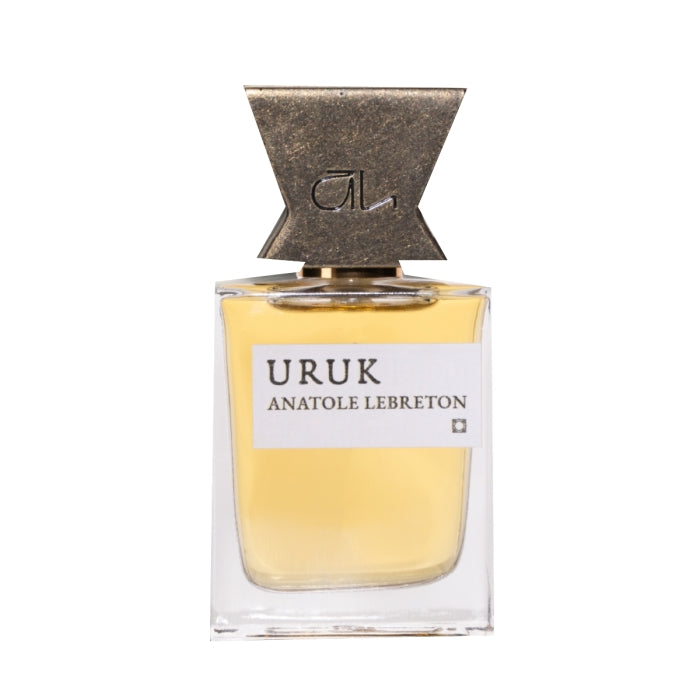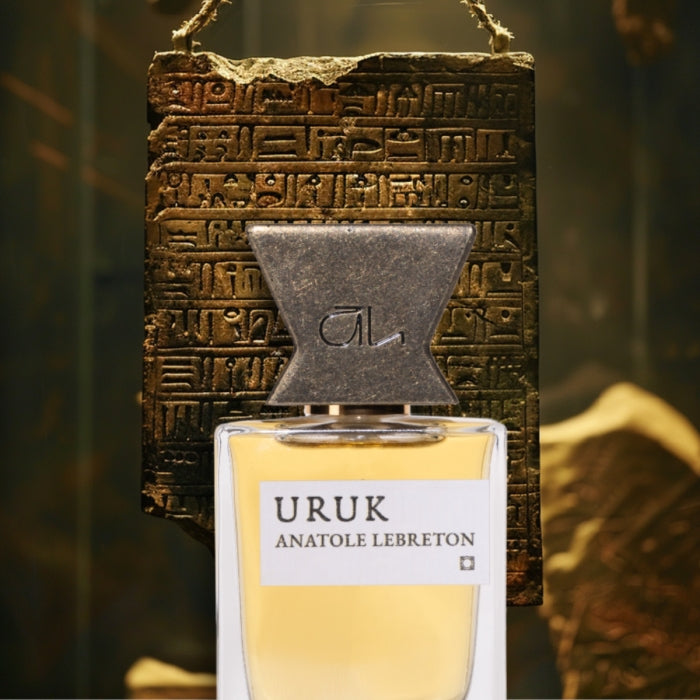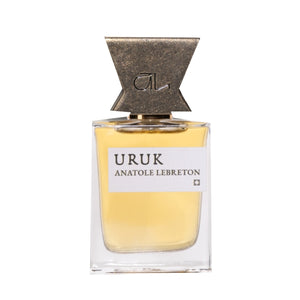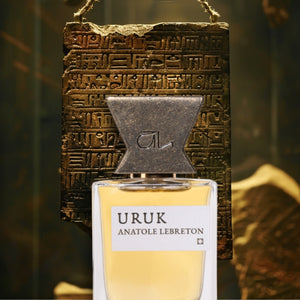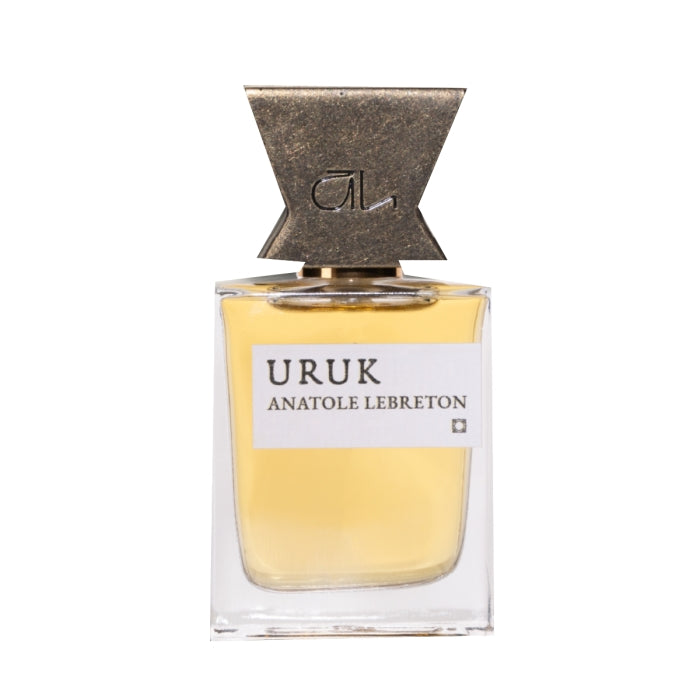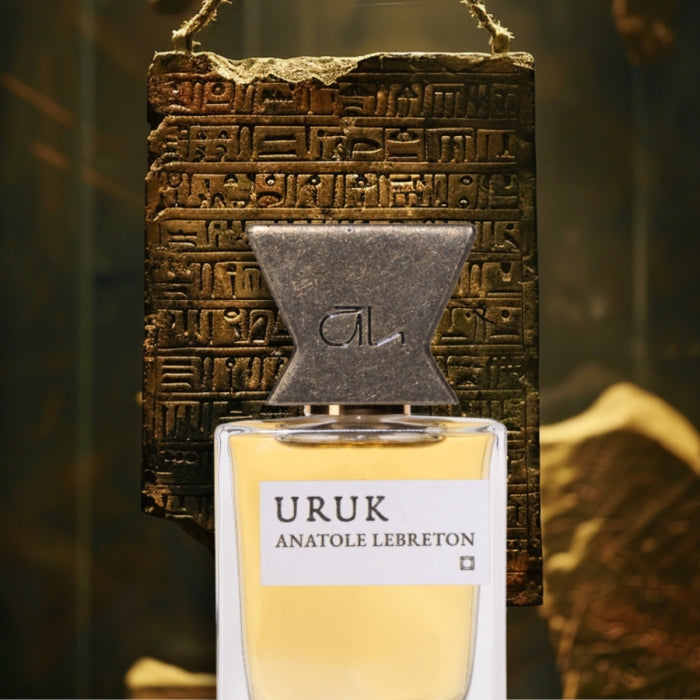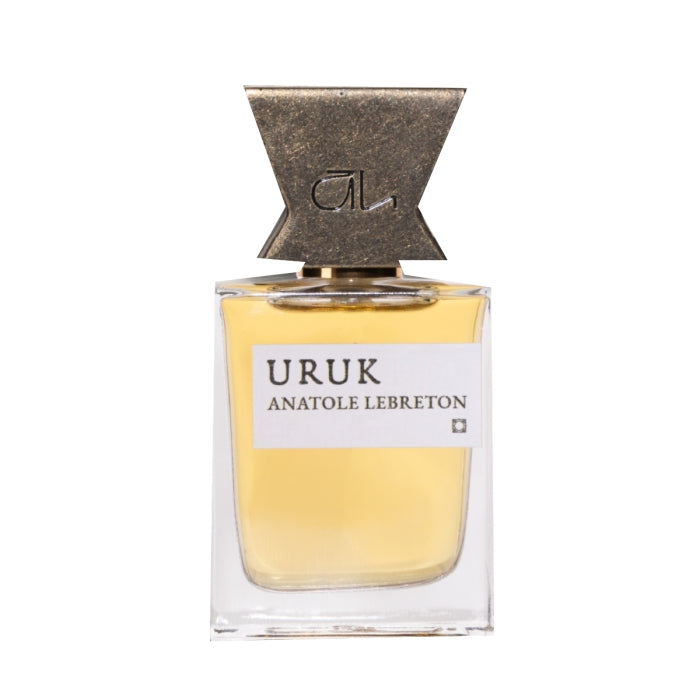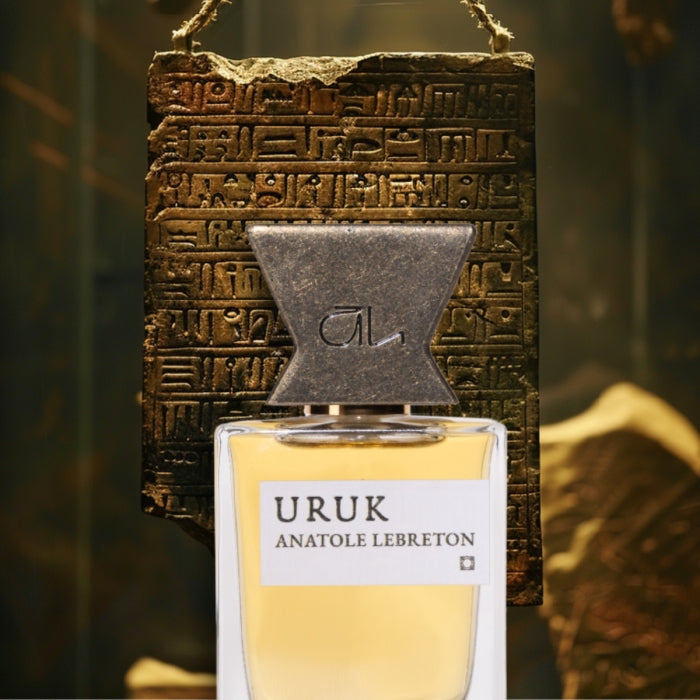Labdanum, nutmeg and incense: three key elements of ancient trade. Cistus from every angle. The woody, leathery and animalistic raw material that is fundamental to amber accords is treated without mercy here to bring out its dark, burning side, which is enhanced by burning incense and benzoin. A generous dash of nutmeg and a hint of orange provide a spicy bite in the top note. An elixir straight from antiquity.
Uruk, Mesopotamia – in the south of present-day Iraq – 5,000 years ago, the birth of writing. In order to better control the flow of goods and food in the city-state of Uruk, the Sumerians wrote nail-shaped symbols on clay tablets with the tip of a dried stick. They assigned these symbols to sounds or words, thus inventing the first writing system. Writing, an unprecedented invention, is a tremendous creative act: an idea is materialised through symbols that are assigned meaning. Writing fixes language on a permanent medium and captures spoken words that would otherwise disappear.
‘I covered my clay tablets with fragrant symbols and cuneiform characters and wrote down the formula for this fragrance, which crackles with resins and burning incense.’
Artefacts
Artefacts refer to artificial objects made by human hands or the artistic process from the Latin ars – art, facere – to make, to produce. In this collection, Anatole Lebreton wanted to explore the mechanisms of the creative act, drawing inspiration from significant events in human history. These artefacts are the result of olfactory excavations in unfamiliar perspectives and distant viewpoints.

